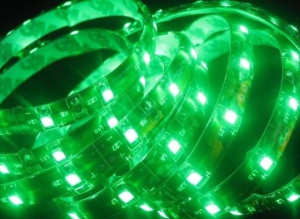The Importance of Certification in LED Technology
Certification is not just a badge; it's a guarantee of quality, safety, and reliability. When sourcing LED modules, the presence of industry-standard certifications can significantly influence the performance and safety of the lighting solutions you deploy.
Key Certifications to Look For
- UL (Underwriters Laboratories) Certification: This is crucial for safety. UL certified LED modules have undergone rigorous testing to ensure they meet specific safety standards. A supplier with UL certification is often preferred, especially for installations in sensitive environments like hospitals or schools.
- CE (Conformité Européenne) Mark: While primarily European, the CE mark is recognized globally and indicates that the product meets EU safety, health, and environmental protection standards.
- RoHS (Restriction of Hazardous Substances) Compliance: This certification ensures that the LED modules are free from harmful levels of toxic substances like lead, mercury, and cadmium. This is particularly important for environmental and health standards.
- Energy Star: For suppliers in the energy-efficient segment, having Energy Star certification means the LED modules perform at or above certain efficiency standards without sacrificing performance.

Advantages of Working with Certified Suppliers
Certified suppliers bring numerous benefits:
- Reliability: Certifications ensure that the LED modules are reliable and can sustain performance over time.
- Safety: Certified products reduce the risk of electrical hazards, which is essential in minimizing liability and enhancing the safety of end-users.
- Compliance and Eligibility for Projects: Many government and commercial projects require certifications for eligibility, ensuring that only high-quality and compliant products are used.
Spotlight on Quality Control
A reliable LED module supplier will not only hold necessary certifications but will also enforce stringent quality control processes. This often includes regular audits and updates to meet or exceed industry standards. Quality control metrics to ask about include:
- Production defect rates: Ideally, these should be below 1%.
- Batch testing results: Consistency in batch-to-batch quality can indicate robust manufacturing processes.
Selecting the Right Certified Supplier
When choosing your LED module supplier, verify their certifications directly on their website or through customer service. Additionally, ask for test reports and certification documents to ensure authenticity. Top suppliers will be transparent about their certifications and willing to provide all necessary documentation.
In conclusion, certifications are a cornerstone in the selection of LED module suppliers, providing a foundation of trust and reliability. They ensure that the products you incorporate into your projects meet high standards of quality and safety, helping to protect your project’s integrity and your company's reputation. Always prioritize these certifications when making your supplier selections.